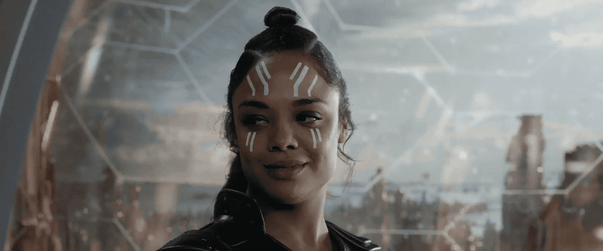How many reflections of yourself do you see in the world?
Here’s why that question is so important.
This weekend, I saw indie rock trailblazers Tegan and Sara perform their breakout album, The Con, in its entirety. The Con debuted 10 years ago and helped usher the duo into the mainstream. (You may recognize them best from their Oscar-nominated song “Everything Is Awesome” from The LEGO Movie.)
To be fair, I’m one of those longtime Tegan and Sara fans who prefers the duo’s earlier, “pre-superstardom” work. But maybe that’s partly because I interviewed Tegan 15 years ago, back when they were still a barely-known band touring in a rental van that kept breaking down.
They’ve come a long way from that interview. Today, Tegan and Sara Quin are Oscar and Grammy nominees, Juno award-winners, global pop stars, and founders of an organization dedicated to supporting LGBTQ rights worldwide.
And it’s easy to argue that none of it would have happened if not for The Con, whose dark introspection attracted a generation of fans who openly identified with the duo’s raw emotions.
So to celebrate The Con‘s lasting impact, the band hit the road to perform it in a stripped-down acoustic set across the U.S. and their native Canada.
Between songs, Tegan and Sara spoke with the audience about their touring experiences. After 19 years on the road together, their lives have changed, but so have the lives of their fans.
As Tegan explained:
“After we started recording more ‘pop’ albums, we suddenly had the opportunity to tour places we’d never been invited to before, like South America and Southeast Asia. And we started getting SO MUCH mail — like, literally, we’d go backstage and there would be just PILES of letters — and a lot of it said the same thing: ‘Thank you.’
We got letters from parents and friends of queer kids who all said, basically, ‘I was so worried about this person because who they are isn’t really accepted or respected here, and they’ve been depressed or afraid. But now I see that you’ve been so successful just by being yourselves, and that gives us hope. Because if you can do it, so can they.'”
That’s the powerful effect of representation.
But representation has a duality: it’s about the stories we tell, and it’s also about who gets to tell their story.
Here’s why this visibility benefits humanity in both ways.
If All I See Is Me, I’m Not Looking Far Enough
Look, I’ll be real honest:
As a straight white cis male, I see my own story everywhere, in every medium, all day long. I almost have to go out of my way to find a perspective that’s drastically different from mine.
And yet, whenever I see a headline or a byline from a fellow Polish-American, I get a bit more excited.
Granted, I know this is, on some level, illogical. I have no proof that someone whose name ends in -cki or -ski or -wicz has a life that resembles mine in any tangible way. But that presumption of a shared heritage means that if they can make it, so can I.
So really, if my experience is about as mainstream as it gets, and even I understand what it feels like to celebrate the visibility of someone who represents an underexpressed part of my own self, then I can only imagine what it’s like to feel invisible in society and then finally see someone you identify with being celebrated and becoming influential to the world at large.
Proof of representation’s ripple effects are all around us.
It’s why Hidden Figures, a film about three pioneering black female scientists, was a massive box office success last year, earning more than Star Trek Beyond, Trolls, or La La Land.
It’s why former surgeon general Dr. Jocelyn Elders said she didn’t grow up planning to go into medicine because she never saw a black female doctor until she was in college, and “you can’t be what you can’t see.”
It’s why Tessa Thompson insists that Valkyrie is canonically bisexual even if the only scene in Thor: Ragnarok that proves it was cut from the finished film.

More than meets the eye…
It’s why Agatha Christie’s estate supported crucial changes to the script of the new Murder on the Orient Express film which omit the original story’s racism and make the cast more ethnically inclusive.
And it’s why Amanda Hess makes a vital point about our current post-Weinstein era of outing celebrity abuses:
While many argue that it’s imperative to “separate the art from the artist,” it’s also worth asking how much art was never created by voices who were driven out of the media industry by powermongers who insist on replicating their own self-perpetuating vision of the world.
If you ever joked about Yet Another Miramax Prestige Picture that follows the same Oscar-baiting formula, then you’ve noticed these explicit biases in our storytelling formulas. Now we’re finally acknowledging the implicit bias in who’s been allowed to tell these stories, too.
Long Story Short?
Each of us has a story to tell, and we have even more stories to experience from others.
Our stories comprise the fabric of our reality. So if your reality feels like it’s fraying lately, maybe that’s because your reality has been overly monochrome and you’re finally realizing there’s a whole rainbow of color that you’re not weaving in.
As for those of us who tell stories for a living, we have a double duty: to use whatever advantages we have to help those who are underrepresented find their own voices, and to represent ourselves as honestly as we can, rather than offering a plastic presumption of what others want to see from us.
It’s time to stop asking “what do the people who control the stories want to see.” Instead, ask “how can I tell my story my way.” People who recognize a part of themselves in you want to see your story succeed, because your story represents a shade of theirs.
And if you can do it, so can they.


4 Comments
Joe · April 8, 2022 at 11:44 am
I feel like this article overlooks or oversimplifies a lot of points. I’m a bisexual genderfluid Filipino-American, but that does not mean I would get impressed or excited just to see stories written by other bisexuals, Filipinos, or gender-fluid people. Don’t get me wrong, I ENCOURAGE such people to write stories, we NEED a diversity of perspectives so that media doesn’t get stale, but I think it’s indeed illogical to assume that their stories are going to represent ME, as a unique individual who isn’t simply summed up by gender, sexuality, or ethnicity.
Bisexual people aren’t all the same, Filipinos aren’t all the same. Just because I can relate with someone in one small area of their life doesn’t mean I’ll like anything else about them. This is especially true of me because I don’t consider my sexuality or my ethnicity to be badges. To me those things are external, superficial sides of me. My real passion is for things that aren’t mainstream in the least. If Disney made a movie representing Filipinos, I can tell you right off the bat that the movie would not touch my heart at all, because I know Disney is a shallow people-pleaser that spoon-feeds sentimentality to brand-devotees, even if the writers and directors were Filipino-Americans. Same thing if Disney made a movie from a bisexual or gender-fluid perspective.
I identify, most of all, as an individual. I’m not going to like or care about everything written by just any person who is superficially similar to me. My tastes are weird and dark and basically hinge on my identity as an unusual being. Only I can represent that, only I can represent me.
Gmh · August 23, 2019 at 12:34 am
My issue is w alot if these campaigns on twitter it always comes off as we need X but who cares if its consistently the same portrayal and actually furthering the stereotype vs pushing against it..like we need representation/diversity but also give some diversity /representations of each one too..how I feel about this is why I’m boycotting birds of prey even though i love ewan mcgregor and not because they made his character gay via sloppy seconds but because the story line makes me feel revolt and sick w all the underlining insinuations as a gay man
Nelisa · May 17, 2018 at 12:08 pm
Thank you Justin such an authentic perspective on representation in storytelling! Representation really does matter in ways than many still realise.. I’ll definitely be quote and sharing your article as part of content on #PRChatAfrica and #AfricaCommsWeek (on Twitter)
Portrayal of introverts on screen – PoojaPath · June 6, 2020 at 1:15 pm
[…] center stage. And that’s great news not only for introverts but for everyone who’s different. Everyone has a story to tell. Stories featuring women, older people, people of color and other minorities at their […]